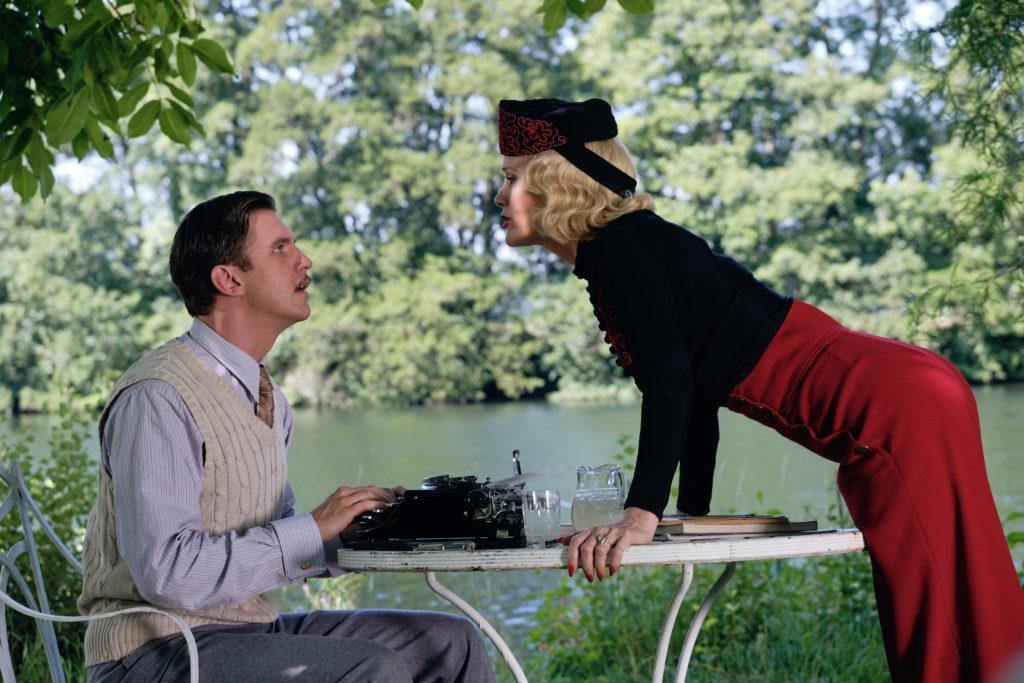Blithe Spirit

Dan Stevens and Leslie Mann star in BLITHE SPIRIT. (Photo: IFC Films)
Dusting off a Noel Coward romantic farce from 80 years ago, the new film adaptation of Blithe Spirit hearkens to screwball sensibilities of yesteryear yet is devoid of sardonic wit and nostalgic charm.
Its mix of broad sight gags and rapid-fire one-liners contribute to a politely tart British comedy that likely won’t resonate with contemporary audiences.
The story is set in 1940s England, where Charles (Dan Stevens) is a smug novelist and widower struggling with writer’s block while trying to adapt one of his books into a screenplay.
He lives in a posh estate with his impatient second wife, Ruth (Isla Fisher), who has clearly married for the money and isn’t helping the situation. “I don’t know how much longer I can go on with you stuck in an imaginary world and me in the real one,” she gripes.
Desperate for inspiration, Charles visits a disgraced spiritualist (Judi Dench) ostensibly for research purposes. She conducts a séance for the skeptical writer, and accidentally summons the spirit of his deceased first wife, Elvira (Leslie Mann), who also happened to be his muse.
Only he can see Elvira, but her mere presence initiates a love triangle involving both women and Charles, who suddenly experiences a boost in productivity whenever the boorish Elvira is around.
This pointless adaptation doesn’t even attempt to update the source material in any meaningful way from its previous iterations on stage and screen — most notably the 1945 film version directed by David Lean and starring Rex Harrison — say, by exploring gender politics or the relationship between art and commerce.
At least veteran British stage and television director Edward Hall keeps the pace lively. The screenplay is innocuous and mildly amusing for a while, and generates some scattered laughs, but mostly feels stodgy and strained.
With regard to Elvira, Blithe Spirit struggles to balance whimsy with malevolence. Dench unfortunately seems out of her element while spouting psychic mumbo-jumbo about astral plains and cosmic flux.
Throughout his career, Stevens has generally excelled in supporting character roles, even though he hasn’t seen that success translate as a romantic lead, for whatever reason.
In this case, Charles comes off as a bumbling fool who never earns our sympathy amid his most unusual troubles. He never sparks enough chemistry with either woman to make us care who ultimately wins his heart.
Rated PG-13, 95 minutes.